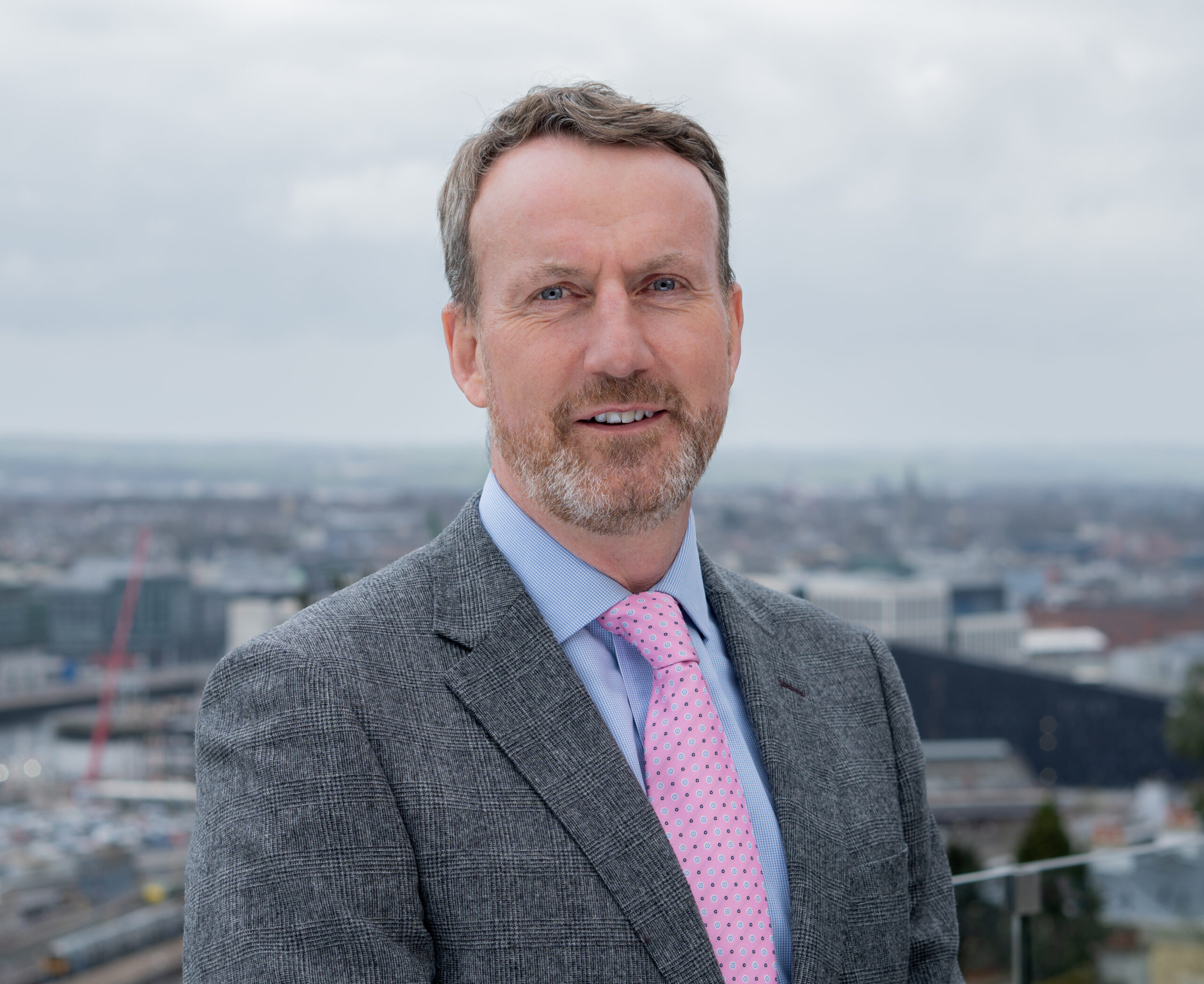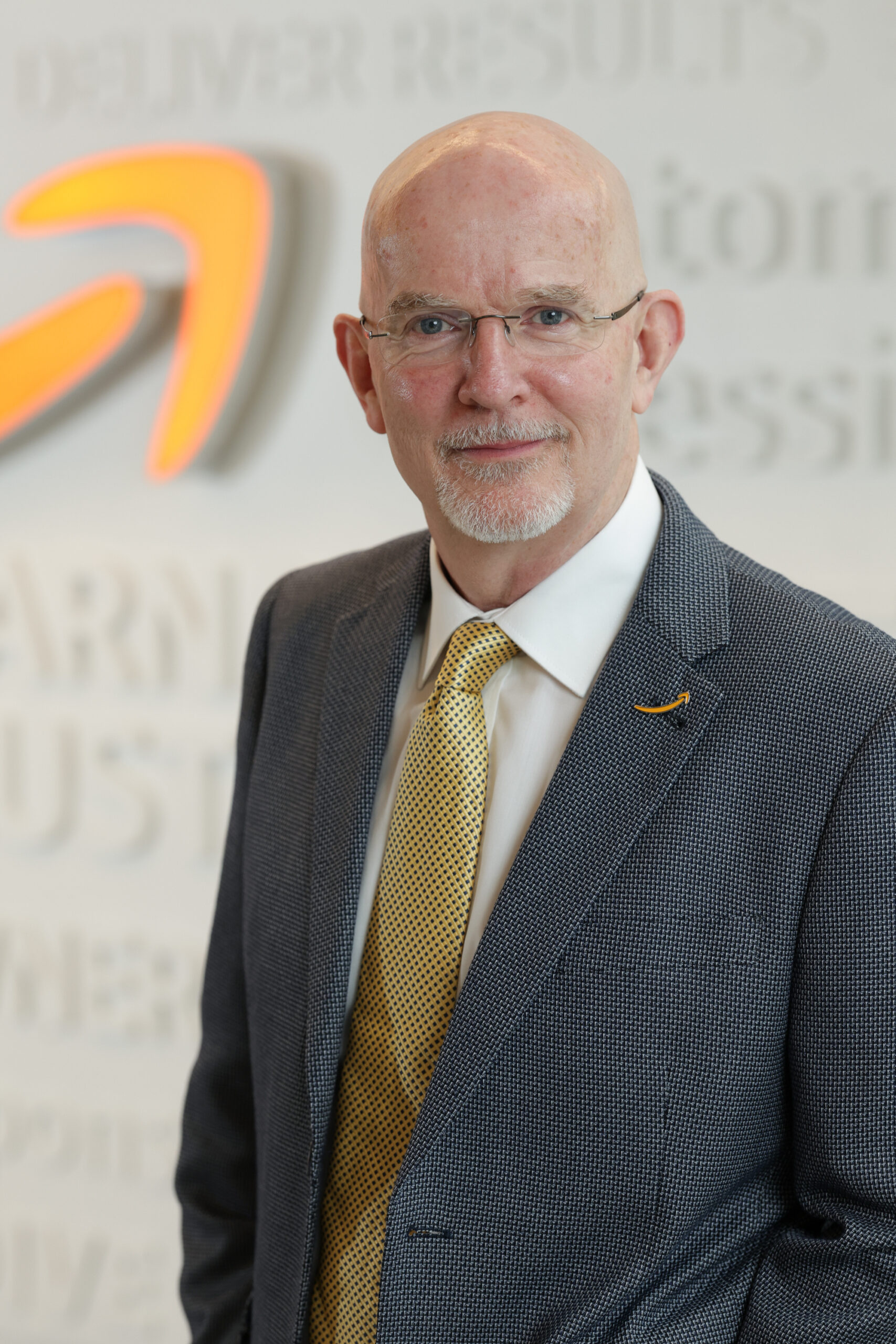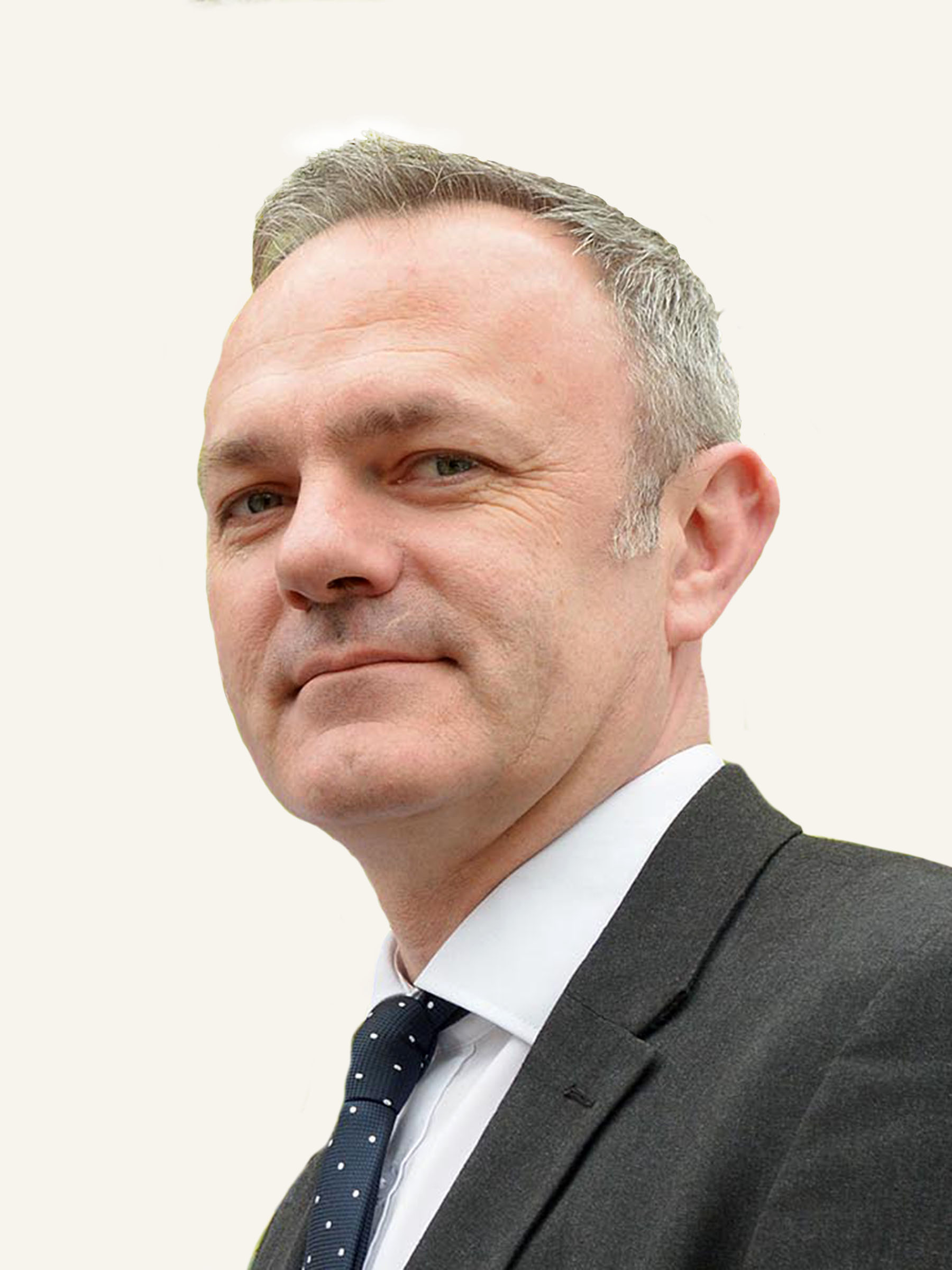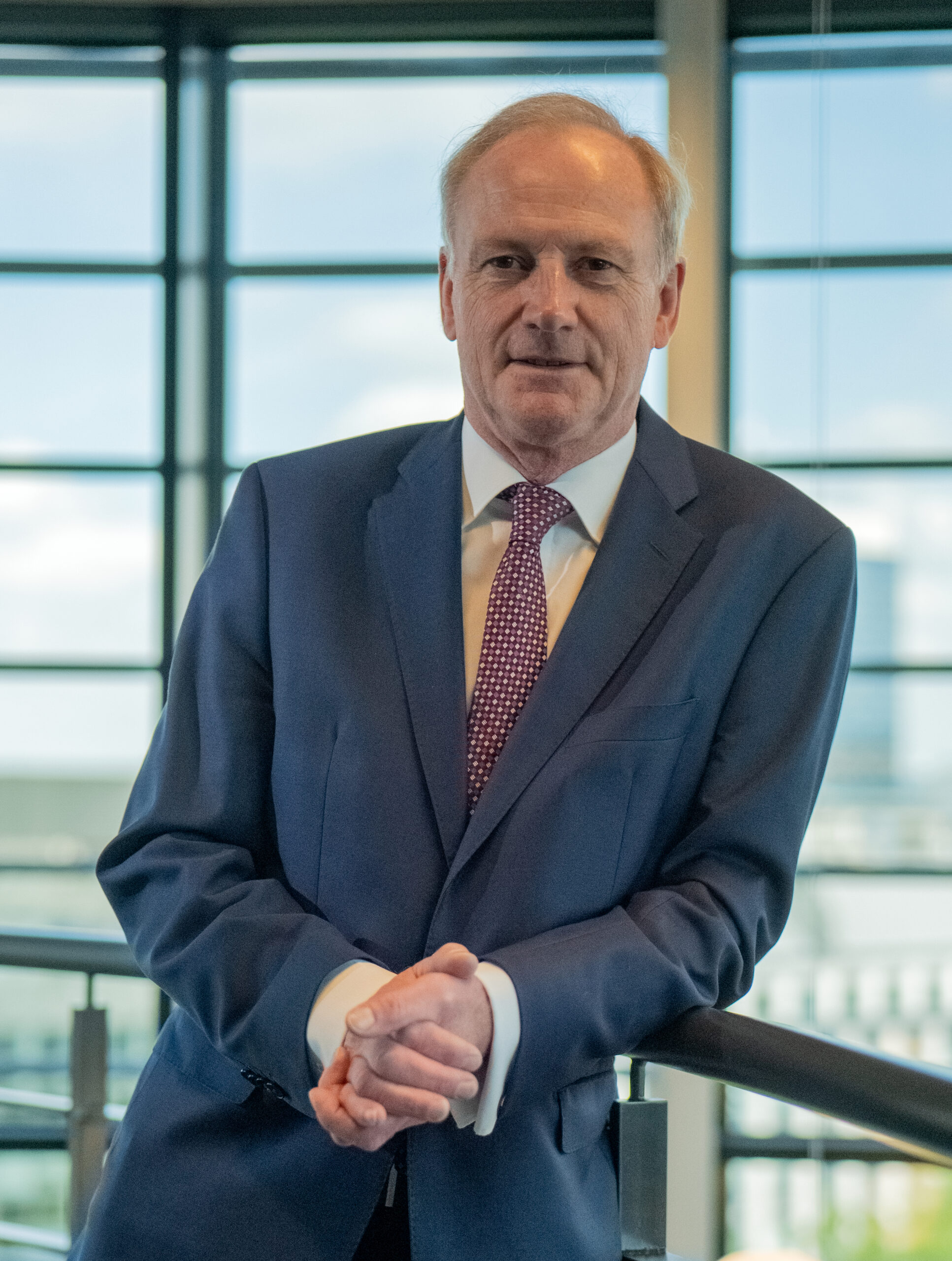Founded in 1935 by a visionary group of construction leaders, the federation has grown into one of Ireland’s most enduring, influential, and largest membership organisations. Over the past nine decades, members have played a pivotal role in shaping Ireland’s built environment, from trusted, multi-generational family businesses to innovative new enterprises driving the industry forward.
Keep updated: 2023 Agenda coming soon
Filter by:
Sub headings
Speakers
7:00am
Registration, networking & exhibition viewing
7:15am
Registration, Networking Arrival Break and Exhibition Viewing
7:15am
Registration, Networking Arrival Break and Exhibition Viewing
8:30am
KEYNOTE ADDRESS
The challenges facing Ireland in maintaining its competitiveness
How Ireland can overcome the challenges it faces in a changing international and European context and the importance of managing the factors under our domestic control.
IRELAND AS A MARKET FOR CONSTRUCTION
8:45am
PANEL DISCUSSION
Ireland as a robust and growing market for the construction industry
To make Ireland an attractive place for construction companies to operate, urgent reforms are needed to address the current lack of investment and bureaucratic barriers that are pushing contractors to seek opportunities overseas. Large contractors are increasingly drawn to foreign markets where higher margins, clearer contracts, and more efficient procurement systems offer better returns and fewer risks. In contrast, the Irish construction sector, in working towards NDP delivery, experiences inconsistent project pipelines and a cumbersome public procurement process that discourages participation.
This panel will discuss:
- The need to create a stable, supportive environment for construction firms as essential to meet Ireland’s growing infrastructure needs
- What the government needs to do to prioritise sustained infrastructure investment
- How can we overhaul procurement practices to ensure fairer, more transparent, and timely contract awards?
9:00am
Government Address
9:00am
PANEL DISCUSSION
Construction as a driver of FDI and economic growth
The Irish construction sector plays a crucial role in laying the groundwork for a smart economy that attracts and retains inward investment. Its exceptional expertise in creating modern, sustainable infrastructure is a key driver of this success. The contribution of Foreign Direct Investment (FDI) to the Irish economy is far reaching and it is estimated that 20% of all private sector employment in the State is directly or indirectly attributable to FDI. A recent success story of the Irish construction industry has been the growth if its strong global reputation for the development of data centres. The specific expertise held by Irish construction companies in building complex, secure facilities for big tech has positioned Ireland as a key player in the global construction market for high tech facilities and been an important factor in the success of Ireland’s digital economy. It has also been an important factor in the success of Ireland’s digital economy, underpinning Ireland’s ability to attract inward investment, foster economic growth, and advance technology.
This panel will discuss:
- emergence of Irish construction as a key player in the global tech industry
- emerging trends on construction for tech and future developments
- how Ireland can harness this home-grown expertise to its full advantage to boost growth, jobs and productivity
- experience of big tech companies in developing facilities in Ireland
- importance of pro-enterprise policy and an attractive business environment to support our reputation as a great place to do business
- expediting critical infrastructure investments to futureproof FDI
- developing and nurturing talent so that we remain an attractive destination for internationally mobile, highly skilled people
How will climate change affect development?
9:40am
PANEL DISCUSSION:
Creating Ireland’s climate-resilient built environment
As rising temperatures become increasingly certain, how can we build housing and infrastructure resilient to future climate change while meeting demands for reduced embodied carbon?
ENSURING A STRONG PROJECT PIPELINE
9:45am
PANEL DISCUSSION
Pipeline, People and Innovation
In order for construction companies to invest in upskilling their workforce and scaling operations, they need a strong project pipeline to justify the investment. Essentially, the pipeline of projects provides the necessary foundation for growth and innovation within the construction industry, requiring companies to invest in their people to meet the demands of future work. Alongside this, new construction methods and technological advancements are driving productivity gains and a need for adaptable, skilled workers who can transition between different areas of work.
Topics will include:
- Connection between pipeline and people
- Productivity gains through innovation
- Skills transfer and upskilling
10:00am
Networking Coffee Break & Exhibition Viewing
10:15am
Morning networking break & exhibition viewing
10:15am
Networking Coffee Break & Exhibition Viewing
DELIVERING ENERGY EFFICIENT UTILITIES AND SUPPORT INFRASTRUCTURE
10:30am
PANEL DISCUSSION
Delivering sustainable utilities and infrastructure for a growing Ireland
The construction industry plays a central role in delivering the substantial State-backed investment plans to address Ireland’s housing crisis, infrastructure requirements and climate change targets over the next two decades, to accommodate the extra one million people expected to be living in Ireland by 2040. A strong and competitive construction industry is vital to deliver a sustainable built environment to support Ireland‘s economic growth trajectory over the next decade and beyond. Our cities and communities need billions of investment in infrastructure under the National Development Plan and we need a plan-led approach to infrastructure, ensuring critical utilities, such as water, are built in advance, to support population growth.
The panel will explore:
- how can we develop utilities to support Ireland’s population and economic growth?
- providing infrastructure to support balanced regional development
- the role of a clear project pipeline to enable construction companies to scale up
- what strategies, plans and actions are needed?
- expediting the delivery of sustainable infrastructure, whilst also decarbonising construction
- what tech innovations and key trends are shaping a greener future for construction
10:45am
PANEL DISCUSSION
Challenges in planning and consents for the construction industry
The construction sector is often hindered by delays in the planning and consents process. Lengthy approval timelines, varying interpretations of regulations by local authorities, and under-resourced planning departments contribute to significant project delays and increased costs. Navigating between planning permissions and building regulations can also be complex, especially when requirements shift or lack clarity. These challenges slow down the delivery of critical infrastructure and impact the quality of life for communities. To address this, there is a need to streamline planning procedures, improve coordination across agencies, and invest in the capacity of planning systems to enable faster, more efficient project delivery.
Infrastructure delivery
11:00am
PANEL DISCUSSION:
How will we build the infrastructure we need for a strong, growing economy?
The government’s NDP, published in 2021, sets out plans to spend €165bn on vital infrastructure in health, education, transport and housing up to 2030. Recent changes to spending rules could mean the accelerated delivery of many of these projects. Our speakers explore the current state of infrastructure in Ireland, where we are on delivery, capacity constraints in the industry and what the Ireland of 2030 will look like after this investment.
DELIVERING A PLANNING SYSTEM THAT SUPPORTS PROGRESS
11:15am
PANEL DISCUSSION
Delivering a planning system that supports progress
Ireland reached a significant milestone in 2023, as its population exceeded five million people. This demographic shift carries profound implications for the country’s economic landscape, including labour force dynamics and infrastructure. Our economy is also thriving and last year, despite global challenges, it was the fastest growing in Europe, with GDP growth of 12.2%. These dynamics underscore the need for strategic planning and policy initiatives to ensure we can accommodate the growing nation, while fostering sustainable economic prosperity.
- how can we increase investment in the people, processes and technology that support the planning system.
- what are the challenges and opportunities for housing delivery in Ireland?
- how can the Government prioritise its streamlining processes within planning and delivery bodies, so that we can expedite infrastructure and housing delivery?
- what is the impact of the revised National Planning Framework (NPF)?
- reviewing the National Development Plan – is it reflective of the recent population growth and the inflationary pressures of recent years?
11:30am
PANEL DISCUSSION
Making the Public Works Contract more attractive to contractors
The current Public Works Contract in Ireland can be unappealing to contractors due to its risk allocation, which tends to place a disproportionate burden on them. This can lead to contractors seeking more favourable terms in the commercial sector. To reform the contract, the government could consider shifting some risk back to the contracting authority, possibly through mechanisms like cost-reimbursement or framework agreements, and offering more flexibility regarding pricing and inflation protection. How can the government can make the Public Works Contract more attractive to contractors, leading to increased competition, better value for money, and a more efficient infrastructure sector? What are the issues with the contract and how should it be reformed?
Topics will include:
- Lack of flexibility, making it difficult to accommodate changes during the project lifecycle
- Improving risk management and allowing for more flexible pricing mechanisms
- Utilising framework agreements to simplify the procurement process and allow for more predictable pricing
- Fostering greater collaboration between the contracting authority and the contractor
11:45am
Housing
11:50am
PANEL DISCUSSION:
How to increase housing supply and provide more homes for more people
- Creating certainty for the industry, mitigating the risks and stimulating investment in offsite manufacturing
- Removing barriers for SME builders
- The new skills we need: Where are the workers?
12:00pm
Networking Lunch Break & Exhibition Viewing
12:00pm
Networking Lunch Break & Exhibition Viewing
12:30pm
Networking lunch break & exhibition viewing
1:05pm
1:20pm
PANEL DISCUSSION
Upskilling – increasing education and training pathways into the construction industry
In the dynamic landscape of the construction industry, upskilling the current workforce and attracting a new talent pool into the industry holds paramount importance. As technologies evolve and advance, empowering our construction professionals with new skills and knowledge is a strategic necessity. Meanwhile positive initiatives are taking place, from the Government’s Careers in Construction Action Plan to committed efforts by the construction industry to showcase the benefits of working in such a dynamic industry, are aiming to reach the next generation of construction workers. Offsite manufacturing, Modern Methods of Construction (MMC) and digitisation are creating new kinds of roles and setting a pathway for a more diverse workforce with a broader range of career options than ever before.
Topics include:
· promoting pathways into construction
· educating the current and future workforce
· the impact of new techniques and methods on construction education
· ensuring a diverse and inclusive work culture
· futuristic technologies, the impact of AI, the effect of technology on the jobs market
1:35pm
Recovery construction: Rebuilding Ukraine
The war in Ukraine has decimated infrastructure and forced thousands of people from their homes. We’ll hear how FIEC and its partners are working on recommended principles to guide the future reconstruction of Ukraine.
FUNDING PUBLIC HOUSING TO REACH HOUSING TARGETS
1:45pm
PANEL DISCUSSION
Funding for Public Housing
Private investment is vital for funding public housing and reaching the housing targets but funding faces challenges related to balancing viability and affordability, securing adequate financing, and ensuring effective project delivery. While government initiatives and private investment are crucial, securing long-term, competitive financing and navigating complex procurement processes remain significant hurdles. Additionally, the need for adequate land availability and a skilled workforce contributes to the overall complexity.
Topics will include:
- The transition from funding allocation to actual project delivery
- The availability of zoned and serviced land in areas of high demand
- The relationship between state funding and private investment
- Access to long-term, fixed-rate financing for Approved Housing Bodies
Skills
2:00pm
PANEL DISCUSSION:
The growing need for new skills and new ways of working
- Who are the next generation of construction professionals?
- Adjusting for the growing need for skilled staff and new ways of working
- Are we doing enough to encourage and engage with the next generation of construction industry workers?
2:15pm
WRAP UP FROM THE CIF DIRECTOR GENERAL
2:55pm
Post- conference Seminar: The Road to Net Zero
A deep dive session for industry leaders to discuss the advanced technologies, challenges and progress toward reducing the construction industry’s carbon footprint
3:00pm
FIRESIDE CHAT
Digitising construction and sustainability: Reducing impact and increasing efficiency
With the world increasingly facing environmental crises, construction – one of the most significant contributions to global emissions – must be transformed to create greener more sustainable solutions. Robert and Ivan discuss the key issues…
3:20pm
















































































